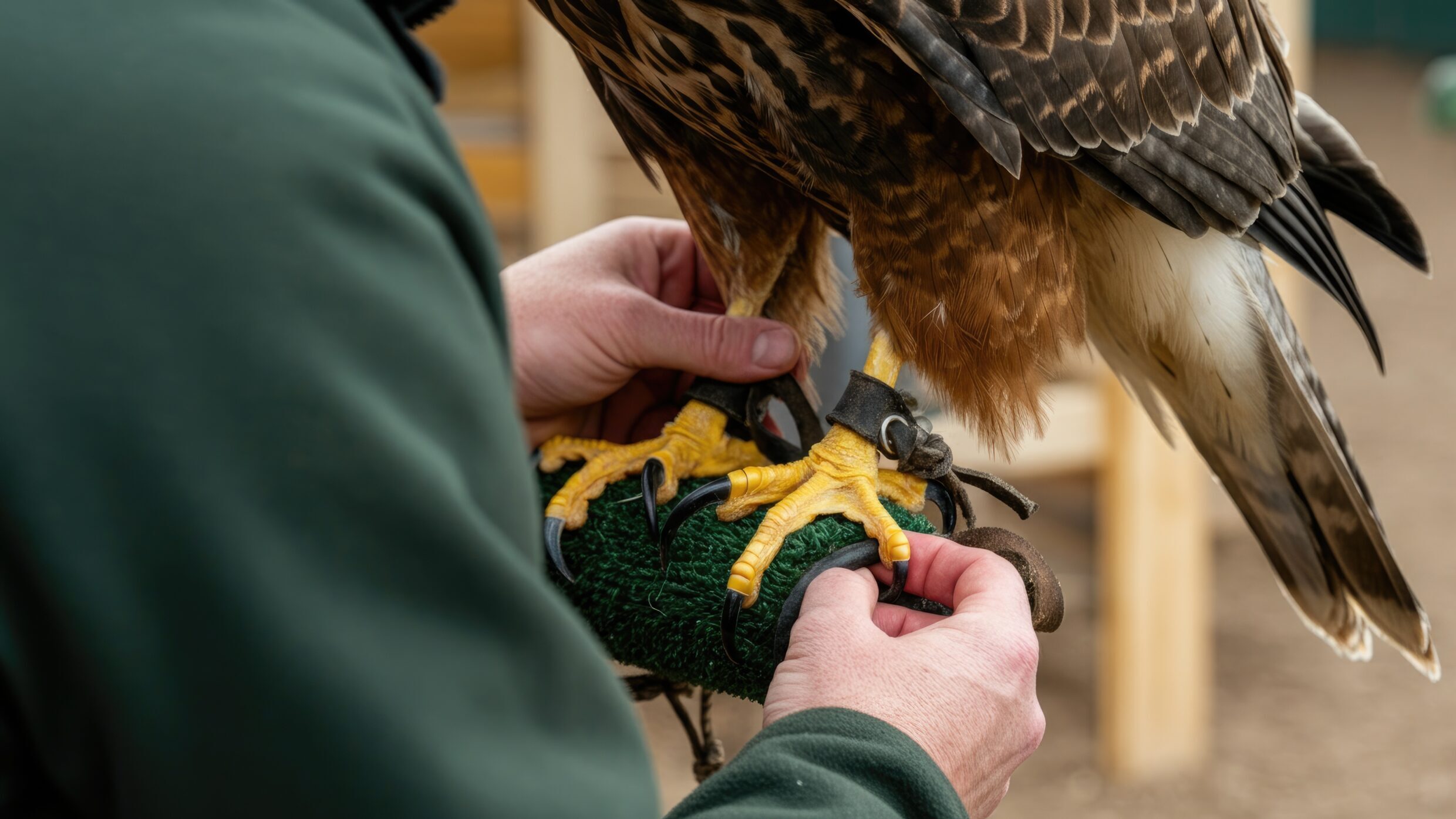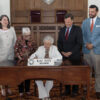Last month, Alabama State Rep. Ben Harrison, R-District 2, introduced HB448, a bill that would allow good samaritans to care for injured or orphaned wildlife without an official wildlife rehabilitation license under certain circumstances.
Also known as the Alabama Good Samaritan Wildlife Rehabilitation Act, the bill would authorize individuals in the state to “in good faith provide care or treatment to sustain life or reduce disability to any injured, orphaned, or debilitated wild bird or animal that is not federally protected or otherwise endangered so that the organism may be returned to the wild.”
The bill does not authorize individuals to engage in the official legal practice of veterinary medicine, or does it exempt any individual from the crime of animal cruelty under Alabama law.
Currently, only licensed wildlife rehabbers can care for injured or orphaned animals found in Alabama. However, there are only five licensed wildlife rehabilitation facilities in Alabama, giving concerned individuals little recourse when they find an injured animal. Additionally, some of those facilities only care for certain species, further limiting rehabilitation options.
HB448 would give good samaritans the ability to care for injured animals themselves before releasing them back into the wild, ideally relieving some of the burden on the state’s licensed rehabbers and improving the overall health of Alabama’s wildlife.
APR spoke with Deborah King, a concerned citizen who is a strong advocate for HB448, to learn more about the impetus behind the legislation.
“Alabama is one of the worst states for Wildlife Rehabilitation,” King told APR in a written statement. “Our state has gone from 100 Wildlife rehabbers in 2013 to only 5 today. The Alabama Fish and Game Department has totally outlawed any resident to assist injured or orphaned raccoons, foxes, skunks, coyotes and bats.”
“When Alabamians call the Department of Fish and Game for help, they are told to let nature take its course. Sadly, the majority of time, the injury is caused by humans, not nature,” King continued. “Compassionate Alabamians who try to save wildlife of any species are [labeled] as criminals and the animal will be confiscated by the state and immediately killed.”
King believes that it is the right of concerned Alabamians to be able to care for injured wildlife in the state.
“There are many Alabamians who see this as trampling on our God Given Rights to be good stewards over God’s Wildlife creatures. We will intervene to save a baby being eaten alive by maggots. We refuse to turn a blind-eye,” King stated. “[HB448] allows wildlife to be saved by our citizens without fear of going to jail and fear of the rescued baby being killed by the state. We are tired of our rights being trampled by our state and it’s time to stand up for our rights to be good stewards over God’s creatures as directed by the Bible.”
King is also one of the individuals behind the Alabama NEEDS Wildlife Rehabbers Facebook page which has been consistently advocating for the passage of HB448 since its introduction. As of writing, the page has around 1,000 followers.
“Our mission is to pass Legislation which will allow Alabama Citizens to exercise their God Given Right to legally rehabilitate ALL Alabama Wildlife,” reads the page’s featured post. “Alabama Fish and Game Department has taken away our rights and made it ILLEGAL for citizens to save Wildlife. We must FIGHT for our Rights!!”
As of 2024, Alabama ranks 49th out of the 50 states on the Animal Legal Defense Fund’s U.S. State Animal Protection Laws Ranking Report. In another recent study, Alabama was ranked 47th out of 50 in wildlife protection.
However, some organizations, like the Alabama Wildlife Center — a licensed rehabilitation clinic for bird species in Pelham, Alabama — have criticized HB448 as “reckless and dangerous” legislation that will not adequately address the wildlife rehabilitation needs of the state.
“We have consulted leading experts – both locally and nationally – to discuss HB448, and we all unanimously agree this piece of legislation has potential tremendous negative effects,” reads a post on the Center’s Facebook page. “While we can all agree Alabama needs more wildlife rehabilitators, the proposed solution of opening Rehabbing up to any and every Alabamian is reckless and dangerous.”
“AWC has expanded our workforce development program, offering 10+ paid internships per year providing critical hands-on experience for burgeoning wildlife rehabbers and naturalists. AWC also collaborates with countless local and national partners to implement common-sense solutions, initiatives, and programs that help conserve the wildlife and natural world around us,” the post continues. “We will continue to work tirelessly alongside our partners on pragmatic solutions to the complex and nuanced issues affecting Alabama’s environment. We encourage everyone to contact their elected state legislators to stress the importance of common-sense regulations in keeping both Alabama’s wildlife and the general public safe!”
The National Wildlife Rehabilitators Association also denounced the bill in its current form and has suggested amending the legislation with additional provisions to ensure the safety of both Alabama’s wildlife and potential rehabbers.
“The Alabama Good Samaritan Wildlife Rehabilitation Act (AL HB448) is currently under review, and while it aims to encourage compassionate care for injured or orphaned wildlife, it poses serious risks to both wildlife and the public,” the organization wrote on their Facebook page. “The bill lacks safeguards against zoonotic diseases like rabies and avian influenza, and it fails to provide necessary guidelines for ensuring proper care. Without clear standards for training, veterinary oversight, and animal release, well-meaning individuals could unintentionally harm the animals they seek to help, or even expose themselves to danger.”
“We urge Alabama residents to contact their local representatives and voice their concerns about the bill. It’s essential that HB448 be revised to include professional standards for wildlife rehabilitation to protect both animals and the people who care for them,” NWRA continued. “Together, we can ensure that wildlife rehabilitation in Alabama is done ethically, safely, and effectively.”
After its introduction in March, HB448 was sent to the Alabama House Agriculture and Forestry Committee for consideration. However, the committee has still yet to vote on the bill with the end of this year’s legislative session fast approaching.






















































